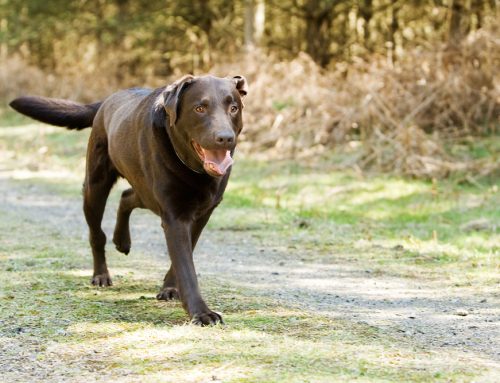Hypothyroidism = most common hormonal disorder in dogs. It occurs when the thyroid glands, located in the neck, are unable to produce enough thyroid hormone.
Thyroid hormone helps regulate & control normal bodily processes & your dog’s metabolism.
In simple terms, the thyroid controls how fast or slow the body functions. When a dog’s thyroid gland becomes deficient & produces too little thyroid hormone, this leads to a decrease in the body’s metabolism.
The exact cause of hypothyroidism is not known. This disease can affect dogs of any age, male or female, & tends to be more common in larger breeds around 5 years of age or older.
The most common symptom is a decrease in energy or activity level & other signs can include:1. Weight gain without increase in calories 2. Sensitivity to cold3. Hair loss or excessive shedding4. A recurring skin and/or ear infection5. Neurological symptoms
So what do you do if you suspect your dog is hypothyroid? Contact your veterinarian who will run some simple tests to determine if your friend has this disorder.
A thyroid test, which determines if the thyroid gland is producing too little thyroid hormone. Additional tests may be added on an individual basis.
Your veterinarian will recommend the right treatment for your pet. If your dog is diagnosed with hypothyroidism, your vet will most likely discuss medication options.
Oral medication is the most common way of treating canine hypothyroidism. With daily doses of synthetic thyroxin, your dog’s symptoms should resolve within several weeks & symptoms of the deficiency should resolve. The medication is inexpensive, well-tolerated, and given once or twice a day.







Leave A Comment